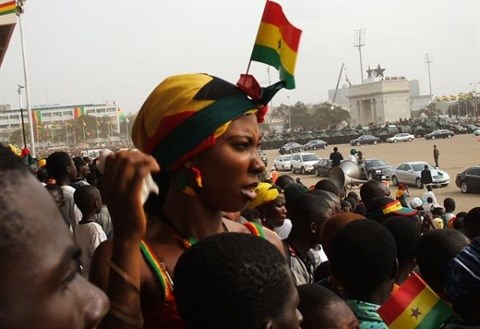How does Ghana see South Africa?

De Kock, who will be in the West African country from 19-26 November, will seek a holistic understanding of what Ghana thinks of South Africa, the challenges the latter faces in changing perceptions, and what opportunities there are for it to create better relations with Ghana. The trip will incorporate two missions: field work to find out what Ghanaians think about South Africans, and a roundtable discussion between Brand South Africa, Brand Ghana, the South African High Commission, MTN Ghana and the South Africa-Ghana Business Chamber.
After his previous research trips to Kenya and Nigeria, De Kock feels he has a better understanding of what the rest of the continent thinks about South Africa and believes there are specific factors that influence the nation's relationship with other African countries. The arts, and particularly South African pop culture, he said, could play a role in building relationships and creating a more positive image about South Africa.
"South Africa's strength is its music, pop culture and television series because of DStv. The satellite TV service is an incredible platform to showcase who we are. I anticipate some similarities in Ghana."
Because of these findings, he said, he would draw up a more extensive report on South Africa's pop culture influence in Africa. "The National Development Plan has specific goals on trade. But the biggest obstacle to trade is perception issues. This is where culture can play a role. We will utilise knowledge of cultural interaction in our market entry strategy."
Ghana and South Africa
Ghana's favourable relations with South Africa go back to the days of Kwame Nkrumah, when his administration provided a safe haven for South Africa exiles during the anti-apartheid struggle. Today, Ghana is the biggest export market for South African goods in West Africa after Nigeria, according to the Department of International Relations and Co-operation.
In recent years, trade between the two countries has grown significantly: South African exports increased from less than R1-billion in 1998 to over R3-billion in 2009, as imports from Ghana increased. In the years 2008 to 2013, bilateral trade rose from $32-million to $60.9-million.
Exports include vehicles, machinery, mechanical appliances, electrical equipment, base metals, aircraft, vessels and associated products. There are more than 80 South African companies registered in Ghana.
In 2012, then Deputy President Kgalema Motlanthe visited Ghana to see if the two countries could co-operate in the energy sector. His visit was followed by then Deputy Minister of Trade and Industry, Elizabeth Thabethe, in June 2013. She led a delegation to Ghana to discuss the acceleration of an economic and trade agreement the two countries signed in 2011.
Lessons from Kenya and Nigeria
De Kock's findings on his trips to Kenya and Nigeria were startling. In Kenya, he learned that South African companies had failed in the way they had entered that market and as a result, had been unable to form worthwhile partnerships. South African businesses had underestimated the sophistication of the Kenyan market and Kenyan managerial capabilities.
"South African companies didn't fully understand the nuances of business culture in Kenya in terms of how they communicated with workers, clients and customers," he said. Some respondents in Kenya found that South Africans were imposing and assertive, creating the perception that such behaviour was common here.
"One respondent felt South African managers were controlling." Nigerians, however, respected the managerial capabilities of South Africans, saying they brought corporate governance to the region. De Kock suggested that before entering foreign markets such as Kenya, South African businesses should first research the business issues and policies unique to that market to decrease chances of failure.
Nation branding about close interactions
The biggest lesson learned was that nation branding was not reliant on news or political policy but on close one-on-one interactions. "It's about the way you manage staff, shareholder relations," said De Kock. "The golden thread is that the reality of perceptions is determined by one-on-one interactions and consumer experiences."
South Africans were seen as open-minded, which was somewhat linked to the country's constitution. "Kenya appreciates that we have few taboos. We can talk about sex openly. They see us as a free society and that we are more confident to raise criticisms."
Source: MediaClubSouthAfrica.com
MediaClubSouthAfrica.com is hosted by the International Marketing Council of South Africa (IMC), the custodian of Brand South Africa. The site is a free service for all media professionals - journalists, editors, writers, designers, picture editors and more - as well as for non-profit organisations and private individuals. Its specific focus is on South Africa and Africa.
Go to: http://www.mediaclubsouthafrica.com/






















